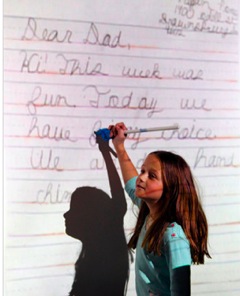Bad Love High School strikes again

The wholesome, glowing bride in this photo is Erin Sayar, a 36 year-old English teacher at James Madison High in Brooklyn. She was removed from her classroom in January for allegedly having sex with an 11th grade student she was supposed to be tutoring. The story is familiar to anyone who follows the non-stop deluge of disastrous teacher/student relationships that fit the Bad Love criteria: an adult in a position of power, a kid who doesn't know any better, lots of sex, and zero judgement.
The story goes that Sayar and the student started having sex both in her office during the tutoring sessions, where they also smoked the weed she kept in her filing cabinet, and in her SUV, where she pulled up in front of his house late one night last fall. In addition to the student's confession that the two of them had sex 8-12 times, he also identified tattoos "on intimate parts of Sayar’s body". And then there's all the texts. For some reason, teachers who have sex with their students are also ferociously enthusiastic texters--Sayar and the student sent 3,856 text messages in 17 days--over 200 a day!
Note to self: if you have 200+ text exchanges with someone every day, whatever it is you're doing with them, it's probably ill-advised and/or illegal.
Somehow, they got caught. Actually it wasn't the kid's mom who figured out what was going on, it was his girlfriend. In an interesting twist on the usual formula, the girlfriend saw her teenage boyfriend flirting with a teacher and got suspicious, so naturally, she hacked his Facebook account. There she found messages from him to his teacher: "I love you so much", and the one that just about breaks my heart: "I always loved you, since last year."
When the adult in these Bad Love situations declares their love for the teenager they're sleeping with, I pretty much assume that they're emotionally crippled delusional creeps. But when the kid tells his English teacher that he's always loved her, since last year, I just feel awful for that poor misguided lovelorn 16 year-old, whose romantic fantasy is a married mother with glaringly obvious mental problems. And I might feel a little bit worse for his girlfriend.
We should point out that James Madison High was also the site of some hot girl-on-girl teacher action in 2009, when a janitor stumbled upon two drunk language teachers, Cindy Mauro and Alini Brito, going at it after school in a classroom, which was the most excellent Bad Teacher story of the decade.
Man, my high school was SO LAME.

